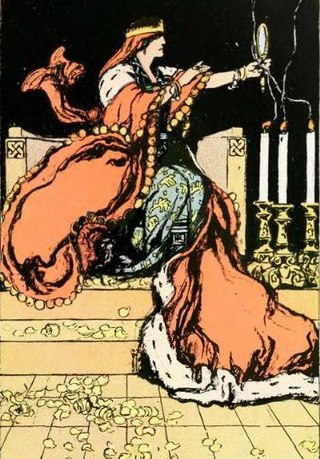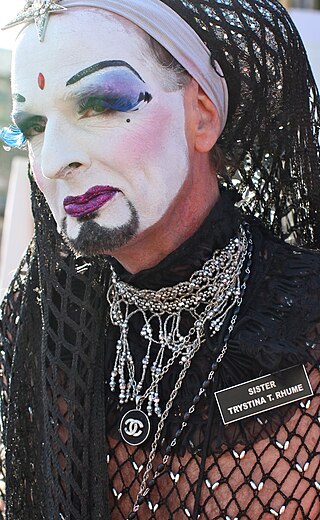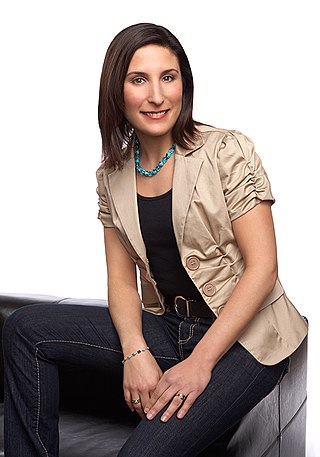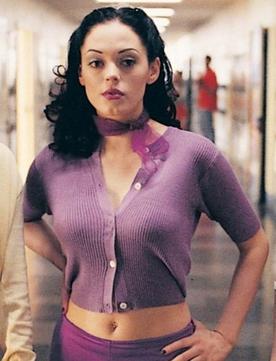
Catherine Rosalind Russell was an American actress, model, comedian, screenwriter, and singer, known for her role as fast-talking newspaper reporter Hildy Johnson in the Howard Hawks screwball comedy His Girl Friday (1940), opposite Cary Grant, as well as for her portrayals of Mame Dennis in the 1956 stage and 1958 film adaptations of Auntie Mame, and Rose in Gypsy (1962). A noted comedienne, she won all five Golden Globes for which she was nominated. Russell won the Tony Award for Best Actress in a Musical in 1953 for her portrayal of Ruth in the Broadway show Wonderful Town. She was nominated for the Academy Award for Best Actress four times during her career before being awarded a Jean Hersholt Humanitarian Award in 1973.

Sexual objectification is the act of treating a person solely as an object of sexual desire. Objectification more broadly means treating a person as a commodity or an object without regard to their personality or dignity. Objectification is most commonly examined at the level of a society, but can also refer to the behavior of individuals and is a type of dehumanization.
"Lipstick lesbian" is slang for a lesbian who exhibits a great amount of feminine gender attributes, such as wearing make-up, dresses or skirts, and having other characteristics associated with feminine women. In popular usage, the term is also used to characterize the feminine gender expression of bisexual women, or the broader topic of female–female sexual activity among feminine women.
Teen film is a film genre targeted at teenagers, preteens and/or young adults by the plot being based on their special interests, such as coming of age, attempting to fit in, bullying, peer pressure, first love, teen rebellion, conflict with parents, and teen angst or alienation. Often these normally serious subject matters are presented in a glossy, stereotyped or trivialized way. Many teenage characters are portrayed by young adult actors in their 20s. Some teen films appeal to young males, while others appeal to young females.

The Evil Queen, also called the Wicked Queen or the Queen, is a fictional character and the main antagonist of "Snow White," a German fairy tale recorded by the Brothers Grimm; similar stories exist worldwide. Other versions of the Queen appear in subsequent adaptations and continuations of the fairy tale, including novels and films. One particularly notable version is Disney's depiction, sometimes known as Queen Grimhilde. The character has also become an archetype that inspired unrelated works.
Adolescent cliques are cliques that develop amongst adolescents. In the social sciences, the word "clique" is used to describe a group of 3 to 12 "who interact with each other more regularly and intensely than others in the same setting". Cliques are distinguished from "crowds" in that their members socially interact with one another more than the typical crowd. Crowds, on the other hand, are defined by reputation. Although the word 'clique' or 'cliquey' is often used in day-to-day conversation to describe relational aggression or snarky, gossipy behaviors of groups of socially dominant teenage girls, that is not always accurate. Interacting with cliques is part of normative social development regardless of gender, ethnicity, or popularity. Although cliques are most commonly studied during adolescence and in educational settings, they can exist in all age groups and settings.

Odd Girl Out is a 2005 drama telefilm starring Alexa Vega, Lisa Vidal, Elizabeth Rice, Alicia Morton, Leah Pipes, Shari Dyon Perry, Joey Nappo, and Chad Biagini. First aired April 4, 2005 on Lifetime, the film is based on the book Odd Girl Out: The Hidden Culture of Aggression in Girls by Rachel Simmons. It sheds light onto the topic of school bullying among girls.

A gender bender is a person who dresses up and presents themselves in a way that defies societal expectations of their gender, especially as the opposite sex. Bending expected gender roles may also be called a genderfuck.

Female Chauvinist Pigs: Women and the Rise of Raunch Culture is a 2005 book by Ariel Levy that critiques the highly sexualized American culture in which women are objectified, objectify one another, and are encouraged to objectify themselves. Levy refers to this as "raunch culture".
Sexualization is the emphasis of the sexual nature of a behavior or person. Sexualization is linked to sexual objectification, treating a person solely as an object of sexual desire. According to the American Psychological Association, sexualization occurs when "individuals are regarded as sex objects and evaluated in terms of their physical characteristics and sexiness." "In study after study, findings have indicated that women more often than men are portrayed in a sexual manner and are objectified. In addition, a narrow standard of physical beauty is heavily emphasized. These are the models of femininity presented for young girls to study and emulate."

In film theory, the "Hawksian woman" is a character archetype of the tough-talking woman, popularized in film by director Howard Hawks through his use of actresses such as Katharine Hepburn, Ann Dvorak, Rosalind Russell, Barbara Stanwyck, and Angie Dickinson. The best known Hawksian woman is probably Lauren Bacall, who iconically played the type opposite Humphrey Bogart in To Have and Have Not and The Big Sleep. The archetype was first identified by film critic Naomi Wise in 1971.
Uniform fetishism is a particular type of clothing fetishism in which an individual is sexually aroused by uniforms. It is a form of sexual fetishism. Uniform fetishism has been associated with a variety of different uniforms, including schoolgirl and cheerleader uniforms, French maid uniforms, and uniforms associated with police or military organisations.

Queen Bees and Wannabes is a 2002 self-help book by Rosalind Wiseman. Written for parents of teenage girls, the book focuses on the ways in which girls in high schools form cliques, and on handling patterns of aggressive behavior. The book was, in large part, the basis for the teen comedy film Mean Girls (2004) starring Lindsay Lohan, its stage musical adaptation, and the 2024 film version of the latter. The book's third edition was published in 2016.

Rosalind Wiseman is an American author and public speaker. She is best known for her 2002 self-help book Queen Bees and Wannabes, which was the basis for the 2004 film Mean Girls.

Pretty Little Liars is a series of young adult novels by Sara Shepard. Beginning with 2006's initial novel of the same name, the series follows the lives of four girls—Spencer Hastings, Hanna Marin, Aria Montgomery and Emily Fields.
Queen bee syndrome is a phenomenon first defined by Carol Tavris and two collaborators in 1973. "Queen bee" is a derogatory term applied to women who have achieved success in traditionally male-dominated fields. These women often take on "masculine" traits and distance themselves from other women in the workplace in order to succeed. They may also view or treat subordinates more critically if they are female, and refuse to help other women rise up the ranks as a form of self-preservation.
The exploitation of women in mass media is the use or portrayal of women in mass media such as television, film, music, and advertising as objects or sexual beings, in order to increase the appeal of media or a product to the detriment of the women being portrayed, and women in society. This process includes the presentation of women as sexual objects and the setting of feminine beauty ideals that women are expected to reflect. Sexual exploitation of women in the media dates back to 19th century Paris, in which ballerinas were exposed to harassment and objectification. The most often criticized aspect of the use of women in mass media is sexual objectification, but dismemberment can be a part of the objectification as well. The exploitation of women in mass media has been criticized by feminists and other advocates of women's rights, and is a topic of discussion in feminist studies and other fields of scholarship.
Gender plays a role in mass media and is represented within media platforms. These platforms are not limited to film, radio, television, advertisement, social media, and video games. Initiatives and resources exist to promote gender equality and reinforce women's empowerment in the media industry and representations. For example, UNESCO, in cooperation with the International Federation of Journalists, elaborated the Gender-sensitive Indicators for Media contributing to gender equality and women's empowerment in all forms of media.
Basic is a slang term in American popular culture used pejoratively to describe middle class white people, especially women, who are perceived to prefer mainstream products, trends, and music. "Basic bitch" originated in hip hop culture and rose in popularity through rap music, songs, blogs, and videos from 2011 to 2014. Their male counterparts are usually termed "bros". Similar labels to "basic bitch" or "airhead" in other English-speaking countries include contemporary British "Essex girls" and "Sloane Rangers", and Australian "haul girls" known for their love of shopping for designer gear, and uploading videos of their purchases on YouTube.

Courtney Alice Shayne is a fictional character who appears in the 1999 film Jawbreaker, portrayed by actress Rose McGowan.










